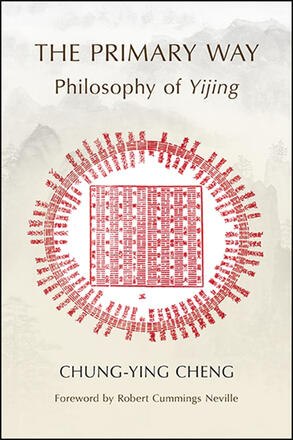
The Primary Way
Philosophy of Yijing
Alternative formats available from:
A unique work on the underlying ontology, cosmology, and moral philosophy of the Yijing.
Description
In The Primary Way, the distinguished scholar of Chinese philosophy Chung-ying Cheng synthesizes his lifetime of work on the Yijing, also known as the I Ching or Book of Changes. Cheng offers a systematic engagement with the classic Chinese text as a philosophy that is still valuable and relevant today. In contemporary philosophical terms, Cheng has developed the ontological hermeneutics of the Yijing as well as its philosophical methodology of symbolic reference in a holistic and onto-generative system of trigrams and hexagrams. The book is organized around eight themes that illuminate Cheng's interpretation of the Yijing as a philosophy for creative human action and transformation. He demonstrates how the philosophy of change in the Yijing embodies early Chinese ontology, cosmology, epistemology, and virtue ethics in the interpretation of divinatory judgments. Cheng's work shows how the philosophy of change contains a vision of humanity as creatively related to heaven and earth, and how it gives positive meaning to any change as part of a ceaseless creativity. With this understanding, it enables humanity to develop its potential as a partner of heaven and earth.
Chung-ying Cheng is Professor of Philosophy at the University of Hawai'i. His many books include New Dimensions of Confucian and Neo-Confucian Philosophy, also published by SUNY Press.
Reviews
"This book will be an extremely valuable contribution to the Anglophone world's understanding of Chinese thought. Its riches are both philosophical and expository, and I believe it will find a lot of use in both undergraduate and graduate classrooms, since in addition to its philosophical synthesis it provides a fine introduction to the often baffling symbolic system and methodology of the text, as well as its history and its ambiguities. It is sinologically solid as well as accessible to educated readers from other disciplines who may wish to find out what the Yi is all about. I think this will be the go-to book on the topic for many years." — Brook Ziporyn, author of Beyond Oneness and Difference: Li and Coherence in Chinese Buddhist Thought and Its Antecedents